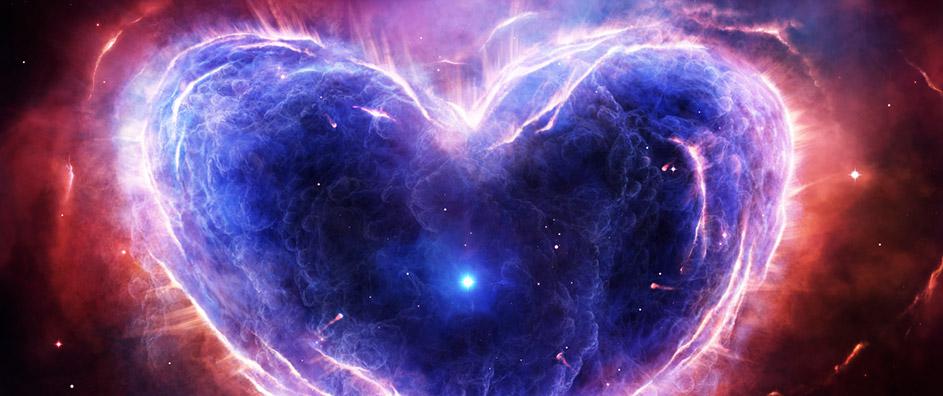The intricate tapestry of existence is often interwoven with the threads of love, posited by many philosophies and religious doctrines as the central force driving the universe. In the context of Bahá’í teachings, love emerges as not merely an emotional experience but as a cosmic principle that illustrates harmony, unity, and purpose throughout the vast expanse of creation. To appreciate the profundity of this concept, one must delve into various aspects of how love constitutes the force that holds the universe together.
1. Understanding Love as a Universal Principle
At the heart of Bahá’í philosophy lies the notion that love transcends human emotion, manifesting instead as a universal principle that governs the connections among all beings. This principle does not merely pertain to romantic affection or familial bonds, but extends to an all-encompassing energy that infuses the universe with meaning and coherence. As proponents of this ideology argue, love serves as the archetypal force that fosters the interconnectedness of humanity and the natural world, forming the basis for ethical actions and collective growth.
The Bahá’í perspective elucidates that love is not static; it is dynamic and transformative. When individuals embody and express love, they catalyze a ripple effect that engenders a more harmonious existence. This principle insists that love, when activated through selflessness, obliges us to strive for the elevation of others, propelling us toward the collective improvement of society.
2. The Interplay Between Love and Creation
Creation, viewed through the lens of Bahá’í teachings, is a manifestation of divine love. The universe is considered the result of God’s infinite love, embodying a purpose beyond mere existence. Everything in creation reflects the attributes of God, and it is through love that we can discern and understand these attributes, such as compassion, justice, and unity.
Moreover, the act of creation is inherently tied to love’s essence. Every living being, from the smallest organism to the grandest celestial body, is interconnected through this cosmic bond. The natural world is a testament to this interconnectedness. When one observes the ecosystem’s cycles, from the germination of seeds to the oscillation of planetary bodies, it becomes apparent that love is essential in preserving balance and nurturing growth. This relationship exemplifies how love catalyzes life and harmony both on Earth and in the cosmos.
3. Love and Human Relationships
In the realm of human interactions, the Bahá’í teachings emphasize the paramount importance of love as the foundation for interpersonal relationships. Love is posited as the critical force that mitigates conflict and engenders cooperation. This is particularly relevant in a world often marked by division and strife. The cultivation of love in communal settings inspires strengthen bonds among individuals, transcending racial, cultural, and religious divisions.
The wisdom embedded in Bahá’í doctrine encourages followers to adopt a disposition acutely aware of the needs and aspirations of others. Practicing love requires empathy and understanding, inviting individuals to elevate their perception of others so that they are seen as integral threads in the fabric of humanity. By fostering genuine relationships rooted in love, social cohesion is enhanced, ultimately leading to a more prosperous and unified society.
4. Love as a Catalyst for Change
Translating the principle of love into actionable change is paramount in realizing the transformative power invoked by Bahá’í teachings. When individuals harness the energy of love, they empower themselves to initiate positive change within their environments. This notion transcends personal relations, extending into the broader societal context, championing social justice and the well-being of all.
Moreover, the transformative power of love manifests in acts of service. Engaging in collaborative endeavors that aim to alleviate the suffering of others—be it through humanitarian work, education, or fostering tolerance—exemplifies the practice of love as an instrument for societal upheaval. The Bahá’í commitment to service underscores that genuine love compels us to act, prompting us to challenge injustice and advocate for equitable treatment regardless of one’s background.
5. The Spiritual Dimension of Love
Bahá’í teachings elucidate that love is not solely a societal or earthly phenomenon; it possesses deep spiritual implications. The relationship between humanity and the Divine is fundamentally love-driven. This love seeks to foster a profound longing for communion with God and an understanding of one’s purpose in life. Consequently, spiritual love propels individuals towards self-discovery and enlightenment.
This spiritual dimension encourages personal growth that transcends worldly attachments. By embracing love as a spiritual pursuit, adherents can navigate life’s challenges with grace and resilience, broadening their consciousness and deepening their understanding of existence. This pursuit is encapsulated in prayer, meditation, and reflection—practices that fortify the soul’s connection to the divine source of love.
6. Conclusion: Cultivating Love in Everyday Life
In summary, the Bahá’í teachings propose that love acts as the fundamental force holding the universe together. From how love shapes relationships to its role in fostering creation and spiritual growth, its significance cannot be overstated. To actualize this transformative force, individuals must commit to nurturing love in all aspects of life, from personal interactions to broader societal dynamics. By doing so, humanity can pave the path toward a more harmonious, just, and enlightened collective existence.
Encouraging a culture rooted in love requires continuous effort, education, and reflection. As individuals work to embody love in their daily lives, they contribute to a greater movement of unity and purpose—precisely the energy that binds the universe together.
